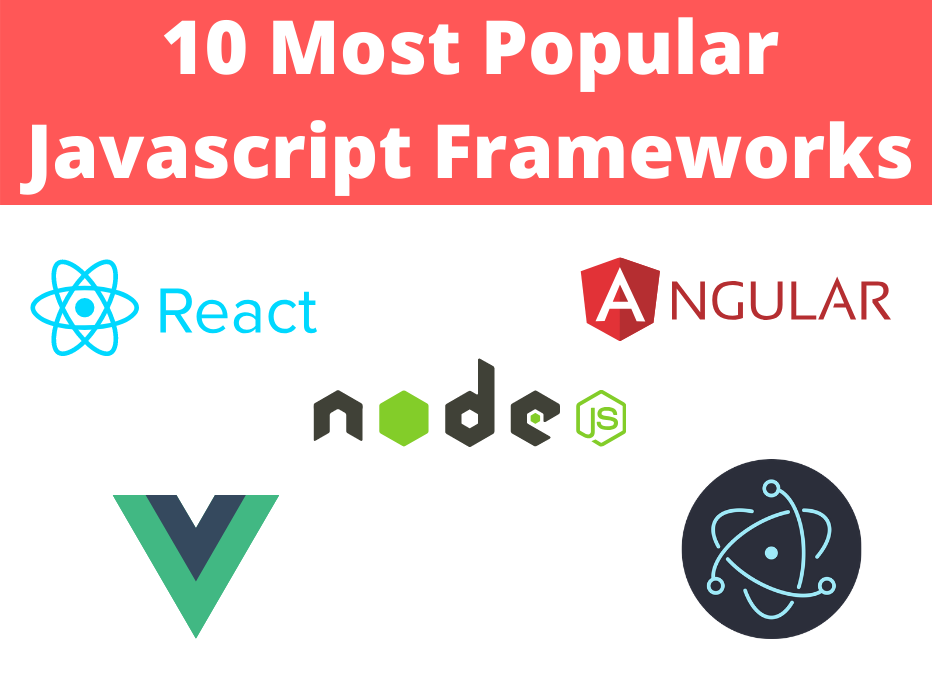Top 10 JavaScript Frameworks Every Developer Should Learn
JavaScript frameworks have revolutionized web development, providing developers with powerful tools and libraries to build robust and dynamic applications. With an ever-growing ecosystem, it can be challenging to choose the right framework to learn. In this blog post, we will explore 10 JavaScript frameworks that are worth investing your time and effort into. These frameworks have gained popularity, community support, and offer unique features that can accelerate your development process and enhance your skills as a JavaScript developer.
React.js
React.js, developed by Facebook, is one of the most popular JavaScript frameworks for building user interfaces. It follows a component-based architecture and uses a virtual DOM, providing high performance and seamless updates. React.js is widely adopted and has a vast ecosystem with numerous libraries and tools.
Angular
Angular, developed by Google, is a comprehensive framework for building large-scale applications. It offers a complete solution, including two-way data binding, dependency injection, and powerful templating capabilities. Angular follows the MVC (Model-View-Controller) architecture and provides extensive features for building complex applications.
Vue.js
Vue.js is a progressive JavaScript framework that is gaining significant popularity. It emphasizes simplicity and flexibility, allowing developers to incrementally adopt its features. Vue.js provides an intuitive syntax, component-based architecture, and seamless integration with existing projects.
Express.js
Express.js is a fast and minimalist web application framework for Node.js. It provides a robust set of features for building web servers and APIs. With its simplicity and extensive middleware support, Express.js is an excellent choice for creating scalable and efficient server-side applications.
The Ultimate Guide to Securing Public Wi-Fi Networks with ExpressVPN
Ember.js
Ember.js is a framework that focuses on convention over configuration, making it easy to develop ambitious web applications. It provides a robust MVC architecture, powerful templating, and automatic data binding. Ember.js follows best practices, reducing boilerplate code and increasing productivity.
Meteor.js
Meteor.js is a full-stack JavaScript framework that enables rapid development of real-time web applications. It integrates the front-end and back-end seamlessly and provides a reactive data system. Meteor.js simplifies the development process by providing a unified platform for both client-side and server-side code.
Backbone.js
Backbone.js is a lightweight framework that offers structure to web applications. It provides models with key-value binding, collections with a rich API, and views with declarative event handling. Backbone.js is known for its simplicity and modularity, making it a great choice for smaller projects or as a foundation for larger applications.
Aurelia
Aurelia is a modern JavaScript framework designed for building scalable and maintainable web applications. It focuses on clean code and extensibility, allowing developers to create custom features and integrate with other libraries seamlessly. Aurelia’s modular architecture makes it highly flexible and suitable for various project sizes.
Svelte
Svelte is a different kind of JavaScript framework that shifts the focus from runtime performance to compile-time efficiency. It compiles components into highly efficient imperative code, resulting in faster load times and better performance. Svelte’s approach eliminates the need for a virtual DOM, leading to smaller bundle sizes and improved efficiency.
Next.js
Next.js is a popular framework for building server-rendered React applications. It provides a seamless way to create dynamic and SEO-friendly websites by combining the power of React with server-side rendering. Next.js simplifies routing, code splitting, and deployment, making it an excellent choice for building high-performance web applications.
Choosing the right JavaScript framework depends on the specific requirements of your project and your development preferences. The 10 frameworks discussed in this blog post offer unique features, extensive communities, and industry support. By learning and mastering these frameworks, you’ll expand your skill set and empower yourself to build powerful, scalable, and efficient web applications. Happy coding!

